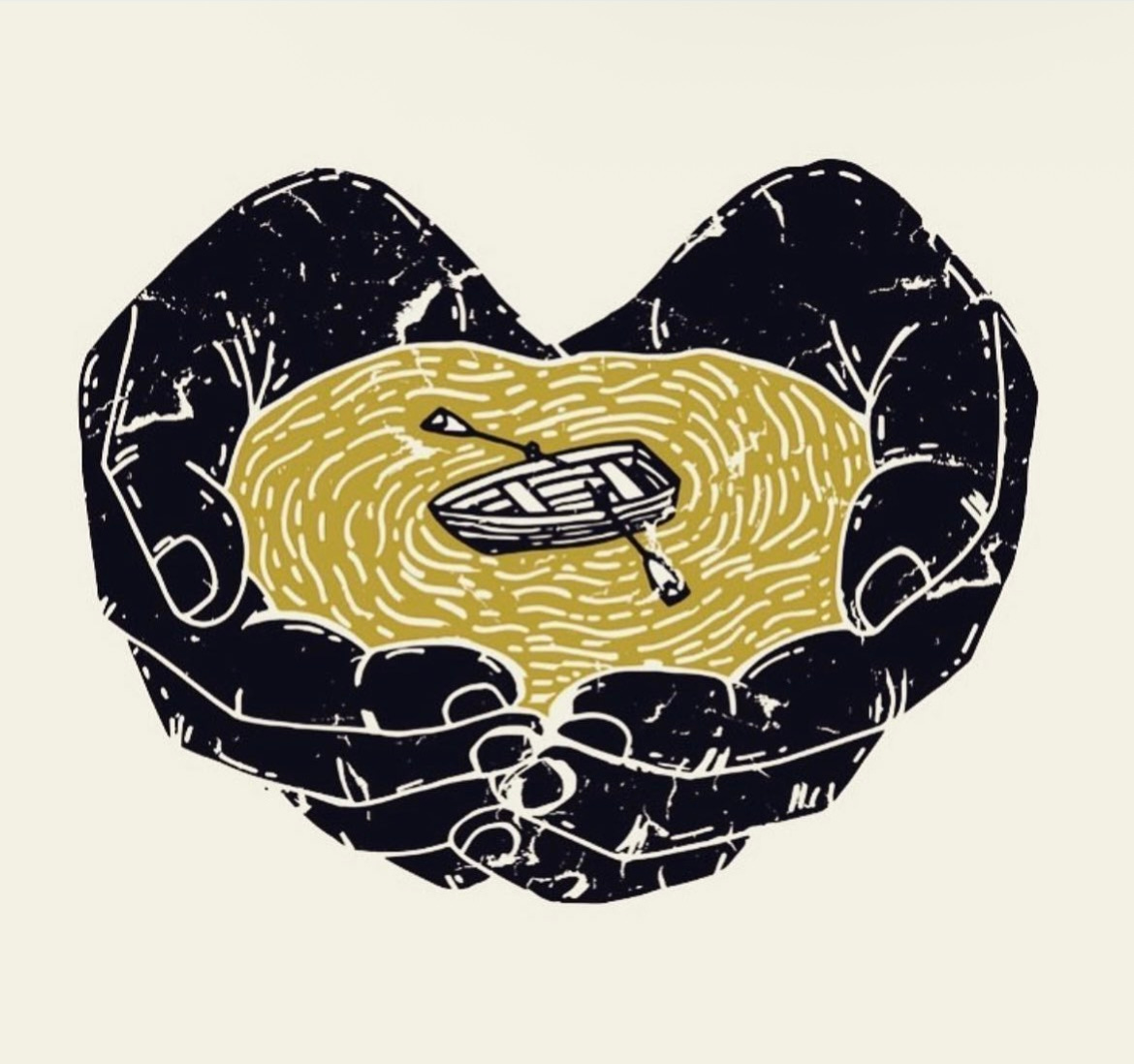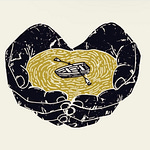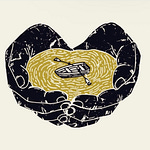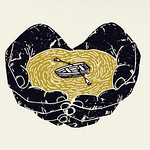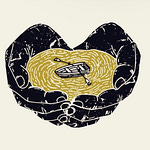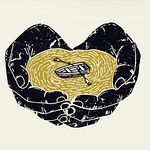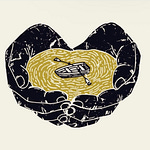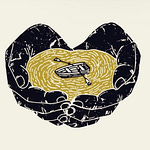Blessed is the one
whose transgressions are forgiven,
whose sins are covered.
(Psalm 32:1)The Covering (Up?) of Sin
In a memorable phrase (not least because Paul quotes it in Romans 4) Psalm 32:1 says, “Blessed is the one…whose sin is covered.”
The language of “covering” is striking here. What does it mean to have your sins covered? This is a suggestive metaphor. And as with any suggestive material, we have to take care in how we hear it. It isn’t immediately clear.
In the winter of AD 412 St. Augustine of Hippo preached a sermon on Psalm 32 to the people of Carthage in the city’s most famous basilica. In explaining what the psalmist means be the covering of sins, Augustine brings up the parable of the Pharisee and the Tax Collector.
In Jesus’ parable both the Pharisee and the Tax Collector go to the temple to pray. The Pharisee thanks God that he is not like the adulterers, the robbers, or even the tax collectors. Unlike these filthy evildoers this pharisee says, “I fast twice a week and tithe on all that I get.” But the Tax Collector stands at a distance and beats his breast as he prays: “God be merciful to me a sinner.” Jesus says that it is the Tax Collector who is justified before God.1
The Pharisee prays opposite of Psalm 32. Psalm 32 says that blessing is for those whose sins are forgiven, but the Pharisee says, “Blessed is the one who has no sins.” The Pharisee’s problem is that he is sinless—just like Saul of Tarsus or the Rich Young Ruler.
Augustine looks to his Carthaginian audience and says:
The Pharisee was indeed guilty of sin; but he was looking the wrong way, and failed to realize where he was standing. He was like someone in need of healing who had come to a doctor’s surgery, but presented only his sound limbs and covered up his wounds.2
Notice Augustine says the Pharisee’s problem is that he “covered up” his sins. But doesn’t our psalm say having your sins covered is to be blessed? Yes, says Augustine, but there are two ways to cover sins: You can cover something in order to hide it or you can cover something in order to heal it. The first leads to death, the second leads to life.
Rather than letting God cover his sins, the Pharisee covers his own sins up to hide them from himself, from his neighbors, and ultimately from God. Augustine continues:
Let God cover your wounds; don’t cover them yourself. If you cover them up out of embarrassment, the doctor will not heal them. Allow the physician to cover and cure them, because he covers them with a dressing. Under the physician’s dressing the wound heals; under the patient’s covering it is merely hidden. Anyway, from whom are you trying to hide it? From him who knows everything?3
The Pharisee presented his healthy limbs: “I fast and I tithe on all I get.” The Rich Young Ruler had kept the commandments from his youth. Saul of Tarsus was “flawless” in his righteousness under the law. Fasting, tithing, and obedience are all good things. But all three refused to present their wounded limbs to the Great Physician. And in the cases of all three the wounded limbs were their pride. Pride is the one thing the Doctor has the hardest time treating. Not because it is too hard for him, but because it keeps the patient from staying on the operating table.
Pride just is the covering up of our own sins. It’s blinding. It is the covering that is a hiding and just so it can never lead to the covering that is a healing.
So, Augustine says, present your sins to the Lord and come out of hiding.
Hiding in (Not from) God
But don’t the Scriptures themselves say that “we are hidden in Christ? Or don’t the psalmists often say things like: “Let me hide in the shadow of your wings”? Don’t we sing, “Rock of Ages cleft for me, let me hide myself in thee”?
Should we hide or not?
The language of “hiding” in Scripture works the same way that the language of “covering” does. As Augustine pointed out, there are two ways to “cover.” There is a way to cover up yourself and there is a way to be covered by God. The same dynamic is at work in the language of “hiding.” There are two ways to be hidden.
I’ve witnessed the two ways of hiding in my young children just this last week. A few nights ago my two oldest kids (5 and 2) were after me to play hide-and-seek. Because my daughter is only 2 years old, she often finds it scary to go hide by herself. So we take turns hiding with her. First my daughter and my son go hide together from me. But the next round my daughter and I would hide together from my son. The first round my daughter was hiding from me. The second round she hides with me.
And I can’t help but notice the absolute giddiness in her as we hide together. Her giggling can’t be contained. Most all of us will all have had the experience of building forts when we were young. There is an excitement and even a giddiness in being safely hidden. Like being in a tent in the rain. I suspect this is the reason most of us sleep with “covers.” There’s a comfort in being hidden.
When the psalmist asks to be hidden under God’s wing he is not asking be hidden from God, but hidden in God. Notice the song Rock of Ages says, “Let me hide myself in thee” not, “Let me hide myself from thee.”
I’m convinced this difference is at the heart of whether or not we grasp the gospel. We have all heard sermons in which the preacher says something like, “If you believe in Jesus, then when God looks at you he doesn’t see you, he sees Jesus.” This is one of the biggest mistakes we can make because what we are suggesting is that we are being hidden in Christ from God. Rather than being hidden in Christ, who is God.
When the psalmist asks to be hidden in the shadow of God’s wings he is comparing God to a mother bird. But a mother bird does not hide her chicks under her wings so that she doesn’t have to look at them. She hides them to be close to them, to comfort them, to protect them from the dangers around them.
For many of us our theology has gone off course here. We have imagined that what Christ does for us is hide us in himself from the Father, so that the Father does not destroy us out of his just wrath.
But this is a perversion of the gospel.
This came home to me reading a book by a modern day shepherd named James Rebanks.4 Rebanks says that when it is lambing season they have mothers that die in the birthing process and little lambs that die. They have motherless lambs and childless mothers.
He says an old shepherding trick is to take the dead body of the lamb who died in birth and skin it from the neck to the hoofs. The shepherd then takes that skin and covers one of the orphan lambs with it like a jacket. Then he takes that orphaned lamb and gives it to the mother who lost her lamb in childbirth. The orphan lamb smells like her baby. And, Rebanks says, she almost always will mother it and feed it as if it is her own. But, and I love this, he says you can tell that she knows something is up. He says the ewe looks at the shepherd with a look that says, “I know you did something and I know this isn’t my lamb.” But after a few moments of skepticism she still feeds and cares for the lamb like it is her own.
Reading this I could feel a version of my former self gearing up to preach it straightaway. “Jesus is the lamb of God who has covered us in himself so that the Father accepts us as if we were him.” But this isn’t what the New Testament bears witness to.
If we press into this metaphor we can see its many problems. The first—and biggest—problem it suggests if taken literally is that Jesus (God the Son) is tricking God the Father into loving you. God doesn’t actually want you, in fact he can’t stand to look at you because you are too sinful. But because his Son is perfect and has covered you, the Father accepts you because you “smell” like his Son.5
This is not the gospel. That would be hiding from God. The gospel promises that you are being hidden in God. He is your home and in him you find your true self—your true identity. You don’t have to cover it up in order for him to accept you.
The gospel is that the lamb of God has died in order to show you that you truly belong to the Father. The Father desperately wants you. This is the deepest truth of your life. God is head over heels in love with you. But he needs you to know that this is true of you. As John puts it, “For God so loved the world that he gave his only Son.” Or Paul says to the Corinthians that “God was reconciling the world to himself in his Son Christ Jesus.”
Jesus does not die to convince the Father to accept you. He dies so that you can see that the Father has loved you from before the foundations of the earth: “You have died, and your life is now hidden in Christ in God” not from God (Col. 3:3).
This is what it means for God to cover your sin. He clothes you in Christ, not to hide you from view, but to keep you close. God doesn’t have to fool himself into loving you. His love makes you who he always meant for you to be.
In other words, when you are clothed in Christ, you are becoming yourself!
This is precisely what happens in the Prodigal Son story. The younger son has gone away from his father and squandered his inheritance on wild living. He comes to his senses and realizes that he should go back to his father, not as a son, but as a slave. When he gets home he tries to tell his father that he is not worthy to be a son, but asks if he can be made a slave in his father’s house. But the Father will not hear it. He says, “Go and get a robe! Cover him in his own robe! For my son was dead and now he is alive, he was lost but now he is found!”
The father covering his son in the robe is not a lie. The father refuses to regard his son as a slave because he has never been a slave. He’s always only been a son. When the father covers his son in the robe he is telling him, “You are my son. You always have been. I put this robe on you so that you know it is true.”
The robe does cover his sin, his nakedness, his poverty, his filth. But it’s not a robe that doesn’t belong to him. It is his precisely because the father says it always has been. In this act of covering his son the father is making the boy to be who he has always been. The father was saying, “Come out of your delusions of being one of my slaves! You are my child.”
This is how God covers our sin. And his covering sin is precisely what makes him righteous. In fact, in Scripture uncovering or exposing sin is often what the unrighteous people do. If they can, the righteous cover sin.
Think of Joseph and Mary. Before they were married she was found to be with child. In Joseph’s mind this pregnancy is the result of Mary’s sin. But because he was a righteous man he decided he would not expose her, but he would cover her.
“Because Joseph her husband was faithful to the law, [or, was a righteous man] he did not want to expose her to public disgrace, so he had in mind to divorce her quietly” (Matt. 1:19).
God covers sin. This is what he’s been doing since Genesis 3. Adam and Eve fall into sin and God is there to cover their nakedness. Because he is righteous.
We often think that to be truly righteous is to expose every sin any chance we get. But this is not righteousness according to Jesus.
Bonhoeffer puts his finger on something we desperately need to hear in our world of exposure and cynicism:
“The point is precisely that ‘truthfulness’ does not mean the disclosure of everything that exists. God Himself made clothes for man (Gen. 3:21); and this means that [after the fall] many things in man are to remain concealed…Exposure is cynical; and even if the cynic appears to himself to be specially honest.”6
God covers sin. That is what makes him righteous. We’ve often been taught the opposite. It is true that God exposes the evil, but he always covers the person (Col. 2:15).
We are called into this same sort of work for those around us. We are called to cover the sins of our spouses, our families, our neighbors, and even our enemies. This doesn’t mean hiding them from God, or pretending they don’t exist. It means hiding them in God for their ultimate healing and restoration.
I leave the last word to the Apostle Peter: “Above all, maintain constant love for one another, for love covers a multitude of sins” (1 Peter 4:8).
Amen.
Augustine says that the Tax Collector beats his breast as a sign that his heart is bruised/broken. The Tax Collector “stood a long way off” but, Augustine notes, the Lord is closest to the bruised/brokenhearted (Ps. 34:18).
St. Augustine, Exposition of the Psalms, vol. 1, p. 375
St. Augustine, p. 375.
James Rebanks, The Shepherd’s Life.
Other problems abound here. But let me gesture towards one other: In this scenario there is no transformation. At the deep level of your being you are untouched. Christ covers over who you really are so that it is “as if” you were Christ. It’s a sort of legal fiction. In other words, God declares that you are his child and that you are holy even though you actually aren’t.
Dietrich Bonhoeffer, Ethics, p. 366.



